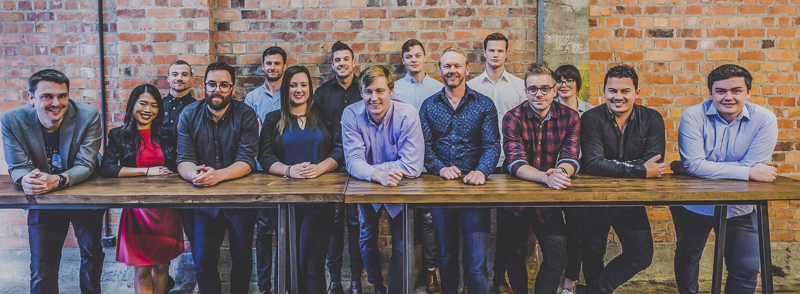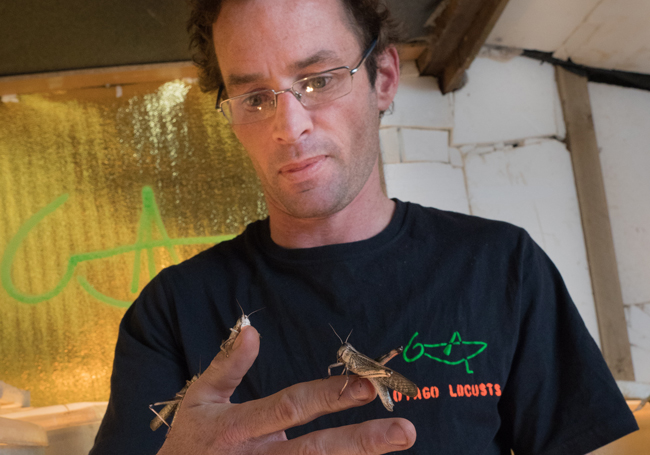Building solid building smart
Three Waikato businesses are harnessing hard work, innovation, relationships and technology to…
Three Waikato businesses are harnessing hard work, innovation, relationships and technology to help solve the country’s building challenge.
The shortages and challenges in the housing sector indubitably played a major role in the outcome of New Zealand’s recent general election. However, a shortage of trained local house builders and a more innovative approach to what could be viewed as a global impasse is not being felt as badly in the Waikato, as three local small businesses are proving.
In two of the cases, relationship-building has been a decisive factor in their success. Other characteristics like hard work, good systems and values are regarded as essentials – plus technology to achieve innovation, and staff sharing in profits.
Lunix Homes was started by managing director Tau Haimona and Peta Taukiri (director and project manager) in February 2016 after learning their trade as qualified carpenters.
Undeterred by their relative youth and brief experience and without prior business knowledge, they backed their combined 30 years’ experience in the building industry, and took the plunge.
The bold move of turning their backs on more traditional labour-only work for other established builders, and renovation work, has paid off as they deliver more than one full home a month in the prestigious Highfield Country Estate Village – a lifestyle and retirement project in Te Awamutu.
“Peta and I decided we wanted to control the entire build, because we were confident we had both the processes and skills to support our goals of top quality and tight financial control,” says Tau.
“We were fortunate enough to get initial work for the developer; worked hard and, I’d like to think, smart. On the back of that we developed a formal partnership, so we are now the preferred builders for the 80-home estate.
“We are proud of having completed 18 new homes, including our own showhome – all this in the first 16 months of operation.”
Peta Taukiri believes their success in growing from a two to ten-man operation is based on their insistence on hiring quality staff – who all share their values and objectives.
“The guys share in our growth, which, in turn is backed by their commitments to always deliver a quality product. We also use good systems and processes, and have grown our brand nicely.”
One of their advisers, Bob Weir, attributes their success to their personal drive and hard work. “Also, their ability to build good strategic relationships and, of course, taking advantage of a strong building market, relying on honest business conduct; quality at all stages of the building process; safety and care of their people; continuous improvement; and operational excellence.
“They are fanatical about tracking costs and margins, as well as obsessing over standards on each and every build,” Weir says.
Unsurprisingly, they are in the running for the Deloitte Fast 50 and Waikato Business Awards.
Built on relationships
Darren Hennesy and wife Vanessa started Ambient Electrical in 2009 following extensive experience in the electrical trades.
“We wanted to grow in terms of the amount of electrical work we could deliver, the geographical reach of the business, and the diversity of the services we could offer,” recalls Darren. “There was no point in sitting still. And we could see the role technology could play in making that happen.”
No longer “just a sparky”, Ambient Electrical now offers the full suite of commercial and residential electrical installations.
Again, relationships with other key businesses, including group home builders in the Waikato and HVAC suppliers like Moisture Master played a role in their growth. They have also managed heat pump installations throughout New Zealand on behalf of major whiteware retailers.
“We’ve also, in pursuing innovative ways to grow the business, developed planning and scheduling software to assist retailers in the installation of heat pump equipment and item delivery,” explains Darren.
“We are also working with technology developers to refine the equipment we install, to ensure the best outcome for the client.”
More recently, to provide more affordable HVAC options, Darren and his team developed the Affordable Air brand that allows people to prepare their own quotes and save money when installing HVAC systems.
Still restless, in late 2016 Darren purchased another electrical business in Te Awamutu, with Chris Cavanagh as a managing partner.
“This not only gave access to a new client base, but saw a new, strong team of electricians and leadership strengthening the business. We continue to seek out other strong electrical businesses to bring into the Ambient family.
“Our innovation now extends to the ownership and performance processes we have implemented with key staff to ensure they achieve the rewards we and the business see as it grows and diversifies,” says Darren.
“We’re both proud of the team we’ve assembled. We’d like to think we’ve shown, with drive and innovation, that the unheralded world of electrical contracting can deliver growth, innovation and diversity if the owners approach their business with the correct mindset.”
Perfecting living environments
Another husband and wife team, Julie and Ross Brown set up their family-owned Brown Construction in 1997 – achieving a solid reputation based on quality and strong family values, raising five children as they rolled out quality homes in the Waikato.
“We were approached by eHaus,” says Ross, “to build their homes in our area and were introduced to the PassivHaus concept. As we discovered more about it, the more we became convinced our future lay there. We developed a relationship with the eHaus founders to the point we became a Waikato licensee in 2014.
“The system adapts totally to the 18 different climate zones in New Zealand, and already some European cities are only allowing new builds to be built this way.”
Julie takes up the story: “To give you an insight – the technique reduces or, in some cases, eliminates the need for auxiliary heating/cooling, with savings of between 70 to 90 percent of energy, compared to a standard build.
“So, we are effectively building houses which are not only going to serve the people we are building for, but also improve the housing stock in New Zealand.”
The Browns have a number of eHaus homes nearing completion, with more in design and development stages. “We believe that in the next few years we will be building these homes exclusively,” says Julie.
“Briefly, it is a design process integrated into an architectural design to achieve the ‘world’s leading standard in energy efficient design’ – delivering unprecedented, all-year-round comfort, energy-efficiency and quality assurance.
“Proprietary software determines the level of insulation required; glazing; how to eliminate the thermal breaks; and the best possible site location.
“So we can guarantee any build, no matter where. The design, materials, and construction methods may vary, but the result is always assured, upfront,” Ross says. “Your home can reliably be kept at a comfortable temperature all year round.
“We also ensure high-quality, fresh, filtered air via silent, imported heat recovery units running on less power than a standard light bulb.”
A key design feature is the continuous layer of thermal insulation, says Julie. “More than double the level of insulation required by the standard building code is installed. This enables the house to perform no matter the temperature outside.”



